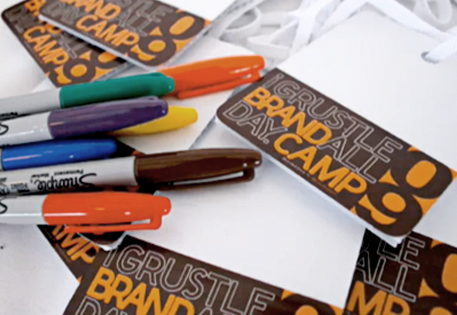Portable personal brand
« Ver todos los consejosToday's entrepreneurs often wear multiple hats, working a full time job while running a first business. In the digital world this leads to the dilemma of being a corporate brand ambassador and simultaneously operating as a personal brand.
With close to billion brand stories being told online in Facebook, Twitter, and various major social networks, how does a small business or individual running the business stand out and stay portable?
Define "Personal Brand"
Your digital personal brand includes the online assets that comprise your digital persona - in plain English, that's your voice, and the online interaction that you use to communicate the real you. As the lines between personal and professional continues to blur, an individual has to manage their digital personal brand while they work for someone else. After all, you want the ability to take your online personal brand assets with you when you move to a new company or transition to being a pure entrepreneur. Essentially, your digital persona needs to move with you wherever you go.
Why is this important?
You'll have approximately 10 jobs between the ages of 18 and 42 - that's around 7 different careers. So it's not a matter of "if" you change careers or companies, but "when" - which makes keeping your personal brand portable critical.
Tips to make your Personal Brand portable
1. Own Your Social Network URLs
Establish (and maintain) separate social network accounts with your personal brand. Your Twitter, Facebook, Flickr etc shouldn't be tied to the company that you work for as the only accounts you have or manage. When you leave a company to start your own business, your accounts should travel with you - but this can only happen if you own the accounts.
Why not establish your profiles in the social networks you're active in before you need them? Every social network provides users the option of customizing a "vanity URL" to align with their personal and/or business brands. A great tool for identifying the availability of customised URLs is Knowem.
2. Own Your Network
In social media we get enamored with numbers and we judge the value of a person's social network by the number of followers or friends they have. But who really owns the contacts in your social networks? The answer is simple - the social network does. If the contacts in your network are only on Twitter, for example, there is a risk of losing them all if your accounts get comprised or the terms of service change.
How should you manage this risk? Create a list from your social network contacts, and download and import your contacts into a personal database that you own and manage. (Be aware though - if you are tweeting from company accounts, then legally you don't own the contact list.) As you transition from employee to small business owner your online network will become more of an asset that has value in the real world to generate leads and get introductions to influencers or key decision makers.
3. Own Your Hub (don't just rent!)
Every person should have an online hub (dotcom) for their personal brand. The dotcom should be aligned with the business brand you own, or your personal brand. Remember that while social networks have tremendous value in helping spread our ideas, you do not own this digital real estate. If you want a nice place to virtually entertain clients, take them back to a dotcom that's all yours.
BrandCamp is an engine of change in Detroit that is focused on entrepreneurial and Intrapreneurial thinking around personal branding.
¿Eres nuevo en MOO?
MOO consigue que la vida sea un poco menos virtual. Ayudamos a nuestros clientes a imprimir productos como tarjetas de visita, postales y adhesivos, para que puedan compartir fácilmente información sobre sí mismos o sobre su negocio en el mundo real.
Imprimir es sencillo y maravilloso. ¡Nos encanta!
Ver Nuestros Productos




